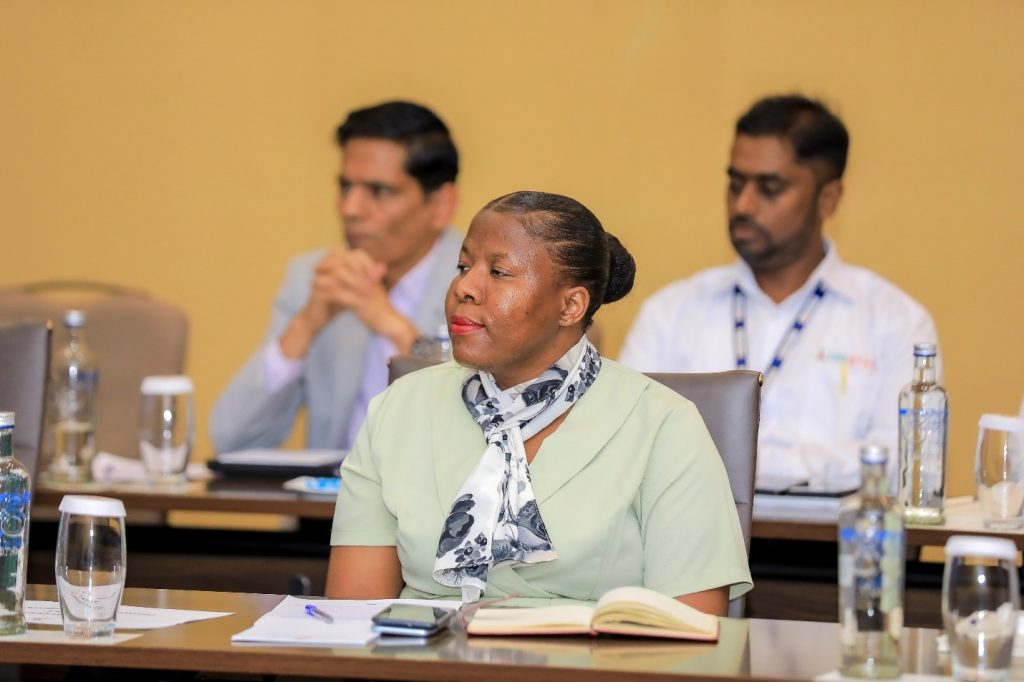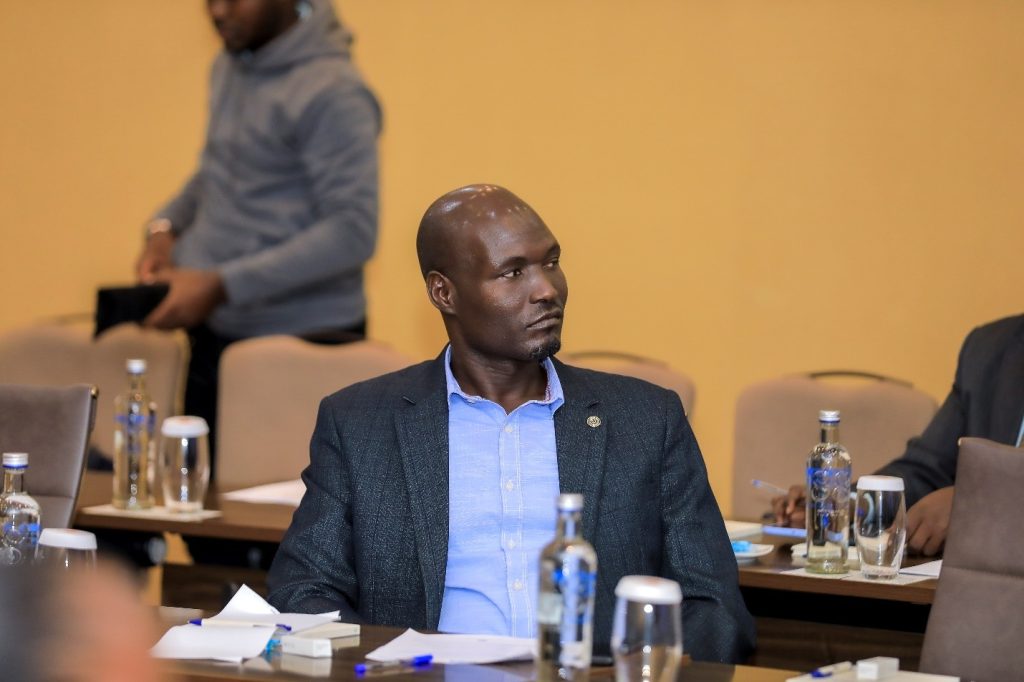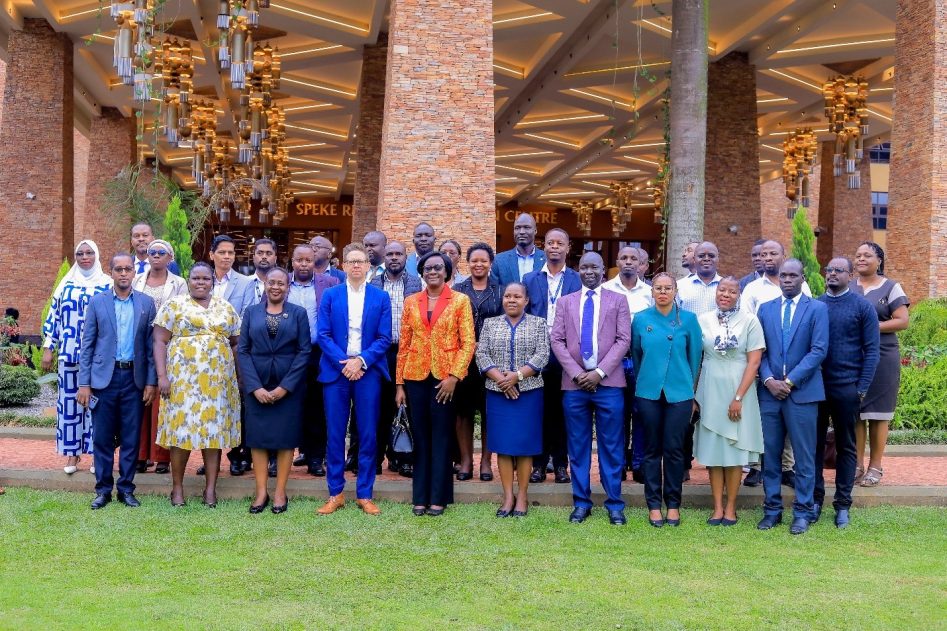Kampala, Uganda – October 2025 – Kyambogo University, through its Department of Mining, Chemical, and Petroleum Engineering, participated in a pivotal national workshop focused on the future of aviation in Uganda and the global effort to reduce carbon emissions, organized by the Civil Aviation Authority (CAA-Uganda). The workshop on “CORSIA, Sustainable Aviation Fuel (SAF), and CORSIA Eligible Fuels” was held from 6th to 8th October 2025 at Speke Resort Munyonyo, Kampala.
The university was ably represented by Dr. Justin Jordan Pidho and Mrs. Mercy Kitimbo Asiku, both from the Department of Mining, Chemical, and Petroleum Engineering under the Faculty of Engineering. Their participation underscores Kyambogo University’s commitment to applied research and its role in shaping national strategies for sustainable energy and environmental conservation.
The workshop brought together key Ugandan stakeholders from the aviation sector, the Ministry of Energy and Mineral Development (MEMD), the National Environment Management Authority (NEMA), the National Agricultural Research Organization (NARO), the National Planning Authority (NPA), Uganda National Oil Company (UNOC), TotalEnergies, Vivo Energy, and academic institutions. Its primary goal was to build local capacity and understanding of the Carbon Offsetting and Reduction Scheme for International Aviation (CORSIA), a global market-based measure designed to stabilize CO2 emissions from international aviation (decarbonize the aviation industry).
A significant highlight of the event was the spotlight on Mrs. Mercy Kitimbo Asiku’s ongoing research. Her work on “Algae as a Feedstock for Bio-SAF Production in Uganda” and a published paper on the use of waste cooking oil was formally presented and categorized under the crucial feasibility studies for developing a domestic Bio-Sustainable Aviation Fuel (Bio-SAF) industry. This recognition positions Kyambogo University at the forefront of exploring locally sourced, sustainable alternatives to conventional jet fuel.
“This workshop was a critical step for Uganda,” said Mrs. Asiku. “It aligns perfectly with our research direction. My work on algae and waste cooking oil explores a promising, home-grown solution for producing CORSIA-eligible fuels. Algae can be cultivated on non-arable land, which means it does not compete for land use like the primary feedstock, listing it among the viable and sustainable feedstock for Uganda. Showcasing this at a national platform helps bridge the gap between academic research and industrial application.”

Dr. Justin Jordan Pidho emphasized the strategic importance of the university’s involvement. “For Uganda to participate effectively in CORSIA and develop a robust SAF strategy, we must build technical expertise from within. Our department is poised to contribute significantly to this national agenda by training the next generation of engineers and conducting feasible, innovative research like Mrs. Asiku’s. Engaging in these dialogues ensures that Kyambogo University is directly contributing to the national policy and technical roadmap.”

Sustainable Aviation Fuel (SAF) is a key component of the global aviation industry’s plan to achieve net-zero carbon emissions by 2050. Fuels derived from sustainable sources like algae, agricultural residues, or waste cooking oils are considered “CORSIA eligible,” meaning they can be used by airlines to comply with the international scheme.
The participation of Kyambogo University’s academics signals a growing and essential contribution from the institution towards Uganda’s sustainable development goals and its preparedness for global environmental accords.
Tags: Aviation Innovation, Bio-SAF, Carbon Emissions, CORSIA, Dr Justin Jordan Pidho, Environmental Research, Faculty of Engineering, Kyambogo University, Mercy Kitimbo Asiku, Renewable Energy, Sustainable Aviation Fuel, Uganda Civil Aviation Authority


https://shorturl.fm/Zawkr
https://shorturl.fm/GSLlA
https://shorturl.fm/LkG6E
https://shorturl.fm/LY7uA
https://shorturl.fm/gDqaj
https://shorturl.fm/BdTod
https://shorturl.fm/yvChK
https://shorturl.fm/m8hQ1
https://shorturl.fm/0a3Gb
https://shorturl.fm/EEjKr
https://shorturl.fm/Xisli
https://shorturl.fm/PEb2w
https://shorturl.fm/hkXUG
https://shorturl.fm/MY1Lp
Vaobong88viva88… Now that’s a mouthful! Heard they got all the sports betting stuff. Odds seem competitive. Might toss a bet on the game tonight. Take a look: vaobong88viva88